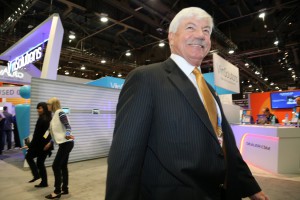A federal appeals court has ruled that, in its current form, a new agency expected to watch out for the financial interests of car buyers and other consumers fails a basic constitutional test.
The court ruled that the current structure of the Consumer Financial Protection Bureau is unconstitutional. The court’s ruling that the current structure of the Consumer Financial Protection Bureau is unconstitutional was immediately hailed by the National Independent Automobile Dealers Association.
Car dealers and auto lenders, including the “captive” finance companies operated by auto manufacturers, had been among the new CFPB’s initial targets.
The U.S. Court of Appeals for the District of Columbia Circuit said the CFPB’s structure violates the Constitution’s separation of powers because the bureau’s lone director is not sufficiently answerable to the President.
The court found that the current structure CFPB didn’t meet the requirement that an agency with a single head need be accountable to the President, meaning they could be dismissed by the White House.
Nor was it an independent agency that answered to a multimember and politically appointed commission like the Securities Exchange Commission, National Labor Relations Board or Federal Communications Commission all of which deal with highly contentious issues.
The Obama administration has the right to appeal the decision to the U.S. Supreme Court but a likely outcome would be that the current divisions on the High Court would leave the ruling intact.
(Toyota pays $21.9 million to settle discrimination claims. Click Here for the story.)
In the case of the CFPB, which was promoted by Senator Elizabeth Warren, the Obama administration came to believe that a strong director appointed for a specific term and insulated from Congressional pressure would be more effective in policing the practices of the financial industry.
Poor and middle-class consumers have often been major targets of the worst financial practices, critics charge, and CFPB made headlines by attacking racial bias in the lending practices.
The court’s opinion relied on the historical practice of independent agencies being headed by multiple commissioners or board members and raised concerns of the threat to individual liberty posed by an independent agency led by a single director with little accountability to the President.
Auto dealers and auto lenders have clashed with repeatedly with the CFPB, challenging its authority to conduct independent investigations or levy impose any kind of punishment.
Thus, the CFPB found itself in trouble with Congress after it began looking at what it said were disparities between minorities and non-minorities when it comes to auto finance transactions.
(Click Here to see Honda’s next-gen CRV.)
Federal regulations of everything from financing and fuel-economy to the handling of recalls amount to the equivalent of a tax on consumers, Jeff Carlson, chairman of the National Automobile Dealers Association said during an appearance in Detroit.
Carlson is president of Glenwood Springs Ford and Glenwood Springs Subaru in Glenwood Springs, Colorado, and Summit Ford in Silverthorne, Colorado, said rules set down by the federal Consumer Financing Protection Bureau, one of the NADA’s top targets, added up to $600 to the price of a new vehicle.
“We applaud the court for recognizing the overreach created when too much power is vested in an agency virtually unaccountable to anyone,” National Independent Automobile Dealers Association CEO Steve Jordan said. “NIADA supports a common sense approach to consumer protection and fair dealing in the financial marketplace, but the current structure of the CFPB accomplishes neither.”
The court’s decision allows the CFPB to continue operating as an agency, but orders it to operate as an executive agency like the other executive agencies that are headed by a single individual.
Last month at its annual National Leadership Conference and Legislative Summit in Washington D.C., NIADA members met with members of Congress to advocate for passage of the Financial CHOICE Act, which would restructure the CFPB to be led by a bipartisan, five-member commission like most independent federal agencies.
(To see more about the tough test coming for carmakers, Click Here.)
The bill would also subject the CFPB’s budget to Congressional oversight through the appropriations process. NIADA encourages all of its members to contact their Senators and member of the House of Representatives and ask them to vote for the Financial CHOICE Act.


